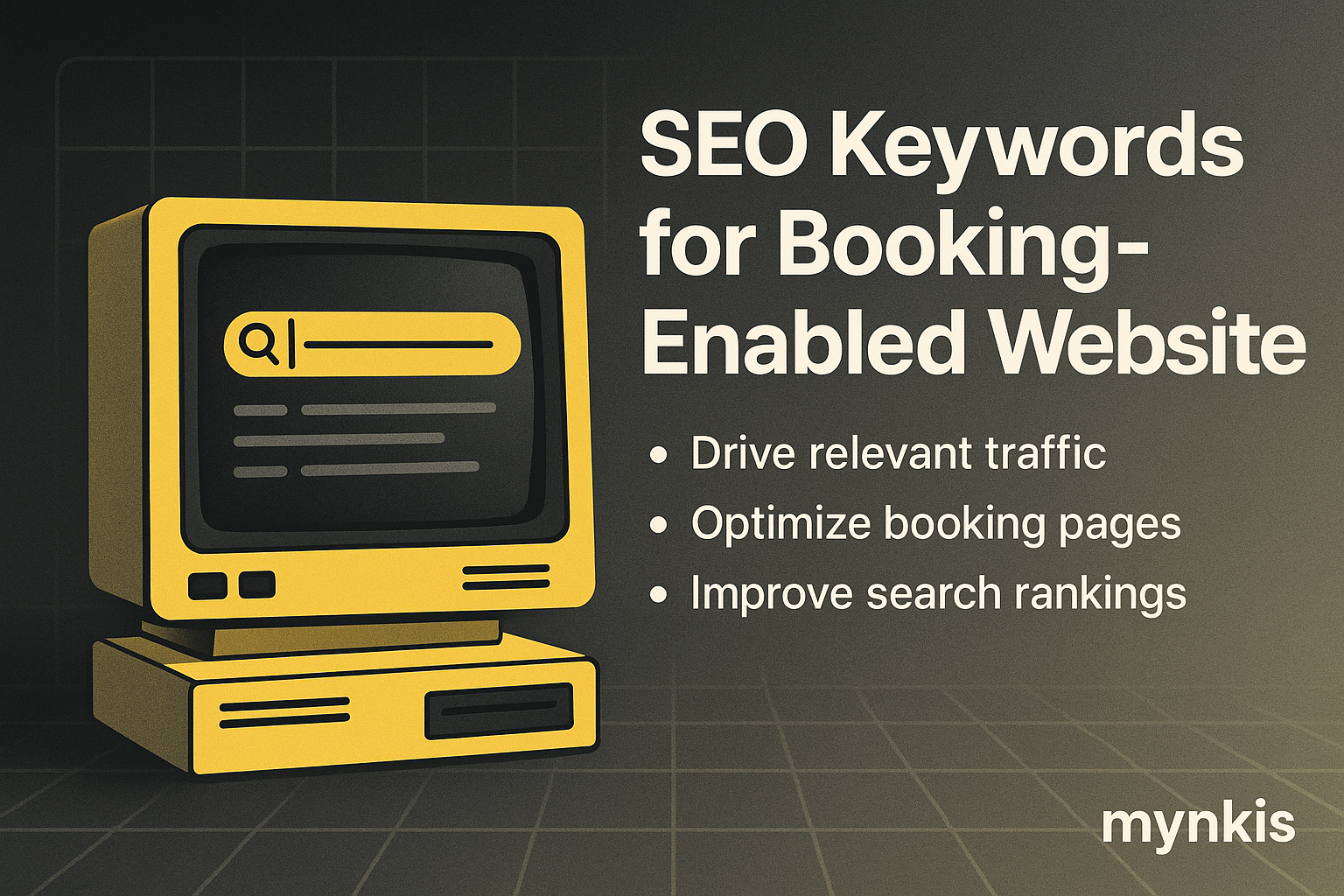Schedule a Demo
In the realm of website development, especially for those integrating booking functionalities, harnessing the right SEO keywords is like crafting the perfect surfboard—it'll take you places you didn’t even know existed. I’ve worked with countless business owners looking to enhance their digital footprint and conversions, and one thing is always clear: mastering SEO is not just a luxury, it's a necessity. Your website, designed with aesthetic precision and user-friendly booking systems, needs to shine at the top of search results. Let's dive into the keywords that will bring your site to the forefront of potential clients’ searches.
First and foremost, identify your niche. Are you catering to luxury hotels, local eateries, or perhaps specialized services like yoga retreats? Pinpointing your target market is crucial because it shapes which keywords will resonate most with your audience. Based on available research, your keywords should reflect the unique value you bring to your clients. If you run a boutique hotel, terms like “boutique hotel booking” or “luxury stay reservation” are gold mines waiting to be tapped.
Long-tail keywords might not get as much hype as their broader counterparts, but they’re essential for niche targeting. Think about the last time you were searching for a specific experience—what did you type in the search bar? Likely, it was something more detailed, such as “best pet-friendly boutique hotel in Malibu.” These long-tail keywords attract more qualified traffic and often lead to higher conversion rates because they align so closely with user intent.
When dealing with booking-enabled websites, geo-targeted keywords are your best friends. People seeking booking services typically want something close to their location. Include city or region-specific keywords like “hotel booking San Francisco” or “yoga retreat reservations in Santa Monica.” This not only makes your site more relevant but also pulls in that coveted local traffic, making it easier for your potential clients to find you when they need you most.
Understanding user intent is another piece of the SEO puzzle. Are your visitors looking to “book now,” “check availability,” or are they in the initial stages, researching with terms like “best places to stay in LA”? Catering to these intents with appropriate keywords can dramatically influence your site’s performance. For instance, someone using the phrase “book a beachside resort” is far more likely to complete a booking than someone who types “beachside resort reviews.” By aligning your keywords with the stages of the buyer’s journey, you'll see not only more clicks but also increased bookings.
Once you've compiled your list of potent keywords, it’s time to weave them seamlessly into your website’s architecture. Titles, meta descriptions, headers, and URLs all offer excellent opportunities to embed these words naturally. But remember, stuffing keywords haphazardly can lead to penalization from search engines. It's about balance and relevance—think of how a muralist places colors strategically to bring their vision to life.
Quality content isn’t just king; it's the entire kingdom. Ensuring that your blogs, product descriptions, and landing pages include your prime keywords organically can elevate your site’s authority. Create engaging, informative posts that address common queries and concerns within your niche. For example, writing a piece on “10 Tips for Finding the Perfect Boutique Hotel in Coastal California” naturally allows you to incorporate relevant keywords while offering valuable insights to your audience.
SEO is not a set-it-and-forget-it process. Regularly monitor your site’s performance using tools like Google Analytics and Search Console. Pay attention to which keywords are driving the most traffic and conversions. If you find that certain keywords aren’t performing as expected, don't be afraid to tweak your strategy. In the shifting sands of the digital ocean, adaptability ensures you won’t get stuck in the shallows.
While keywords are the navigators that steer your site's visibility, the user experience is the compass that ensures your visitors stay. A seamless booking process, intuitive navigation, and responsive design are all critical. These elements not only enhance your site's SEO but also make it more likely that visitors will book with you. Remember, the ultimate goal is not just to attract clicks but to convert them into bookings.
Speaking of user experience, let's not forget that design plays a significant role in SEO. A beautifully crafted, yet simple website not only engages users but can also impact page loading times—an important ranking factor. From mobile optimization to clean code, your design team’s efforts impact how effectively your keywords shine. In my experience, a well-designed site that is packed with the right keywords can achieve wonders in terms of both user engagement and SEO rankings.
The digital world evolves rapidly, making continuous learning essential for staying ahead. Attend webinars, read industry blogs, and perhaps even join forums dedicated to SEO and web development. Sometimes, experimenting with new keyword combinations or trending search phrases can lead to unexpected breakthroughs. This approach keeps your website not only relevant but thriving amidst competition.
It’s worth noting that while diving deep into SEO, you must adhere to legal and ethical guidelines. For instance, avoiding misleading information or black-hat SEO techniques is key. In my experience guiding business owners through the digital maze, ensuring that your keywords and SEO strategies align with legal frameworks fosters long-term growth and builds trust with your audience.
Lastly, while SEO may drive traffic to your site, never lose sight of your brand’s unique identity. Your branding—like the Californian sunshine—should infuse every aspect of your website, including your SEO strategy. Keywords should enhance your site's story without overshadowing your brand's unique voice. By marrying SEO with your brand’s ethos, you create a compelling, cohesive experience that resonates deeply with your audience.
